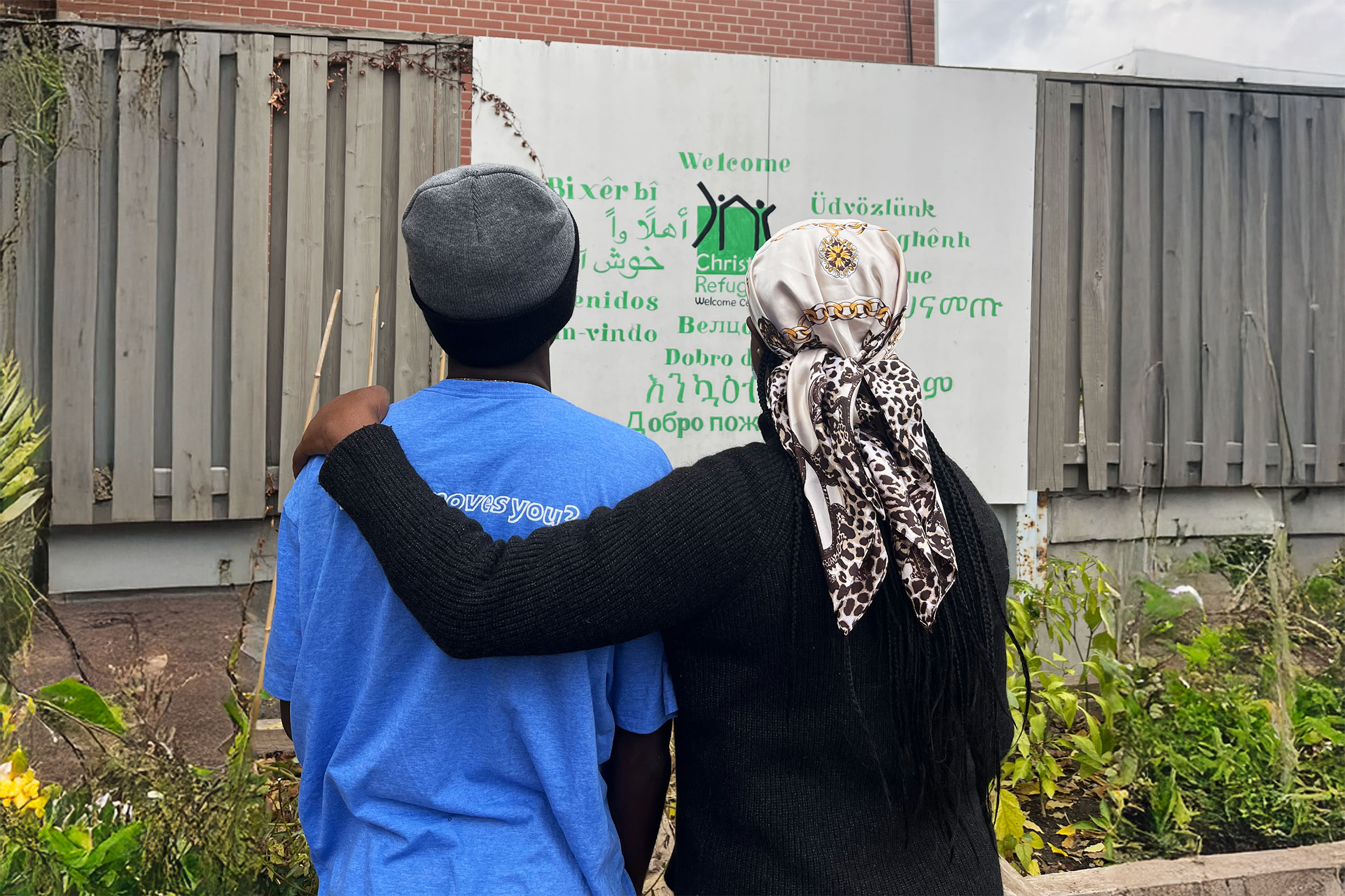Ruth Kikuyu* left her home country of Kenya as soon as she realized she was in danger, but it still took her three years to escape.
Fleeing an abusive partner who was also a soldier in the Kenyan army, Ruth’s journey out of danger began in 2020 after an especially violent incident committed against her by her husband. Married unwillingly, the physical attack left her severely injured and traumatised and she became the target of mob attacks. After an especially violent and targeted mob attack while out on a routine trip to the grocery store in her hometown of Nairobi, Kikuyu immediately applied for a Canadian visa [Kenyan nationals cannot travel to Canada without a visa]. But this was 2020. Because of global COVID-19 restrictions, the wait for a visa to Canada was measured in years. A mother to four young boys, all under the age of 18, Ruth went with her children into hiding.
“Only my eldest son and I received our visas by May 2023. My other children’s visas required a letter from their father which I could not submit. Immediately, [as soon as my eldest son and I] received visas, we borrowed money, got an air ticket and we moved,” explains Kikuyu of the difficult decision to leave her children behind, even if in the care of her sister. One of her children was still breastfeeding when she fled to Canada.
“I’m here but my children back home are not safe.”
Upon leaving Kenya and arriving to Toronto, the culture shock for Kikuyu and her son (both had never travelled outside of Kenya) was stark.
“It was very hard, [I] did not expect so many questions [at the airport},” says Kikuyu, half-jokingly describing her first few hours in Toronto in late May of this year.
Due to the lack of available shelter space in the city, the family of two had to stay at an emergency triage hotel, operated by the City of Toronto, for refugee claimants, before they were referred to Christie’s emergency shelter services. The hotel stay offered little information about their rights as refugee claimants in Canada, best practises for next steps in submitting a refugee claim, or information about any other services the family could make use of.
But Kikuyu, a forever optimist, remained grateful.
“I saw that I’ll be safe here [in Canada] and for sure I am safe. In Kenya, I was seeing everyone as a threat so I was not safe to go out. But here I can move freely. I am not fearing anyone,” Kikuyu recalls of her mindset during her first few weeks in Canada.
While at the hotel, Kikuyu also connected with other Kenyans in Toronto forming a Whatsapp support group and joined a Kenyan-based church. Small comforts of back home.
After the family’s referral to a more appropriate shelter setting two weeks later, from the hotel to Christie Refugee Welcome Centre, the culture shock and adjustments did not wane.
“Here, we are very many living at Christie,” explains Kikuyu who arrived to a full Centre at 100% capacity, housing over 70 individuals.
“Yes, we have to share everything [including washrooms] and yes some families are nosier…but I did not take it as a bad thing because everyone is coming here for rescue,” Kikuyu tells, humbly.
Slowly, she and her son oriented themselves – to the Centre and to their newfound community. They participated in activities organized by Christie staff including summer soccer and basketball tournaments. And although already an English speaker, Kikuyu enrolled in English classes to better her vocabulary. She also enrolled in courses to become a personal support worker. Her son enrolled in high school and is currently in 12th grade, working towards graduating high school in May 2024. Kikuyu and her son were also active volunteers at the Centre, serving in the kitchen and with Christie’s Children’s Program.
The family even secured housing recently and will be moving out from the Centre this month. This can only be seen as an absolute miracle and a testament to their determination to live independently, given the family has not yet received their official refugee claimant identification papers from the Canadian government, more than five months since arriving in Canada.
Kikuyu’s proudest moment so far, however, hasn’t been securing housing. Or getting back to school. It has been seeing the change in her eldest son with whom she arrived to Canada together.
“Back home, Kevin* would stay at home and would see whatever I am going through [with my husband]. He was not talkative; you could not know what he wanted and doesn’t want. Here in Canada, he has so many friends. He is much more talkative. He is saying he is very safe here. He’s doing very well, and he is happy,” says Kikuyu with pride.
But Kikuyu is adamant to note that none of this was possible alone and that she would not be where she is without the gentle support of Christie staff and its community. The Centre has supported her with enrolling in English classes, enrolling her son in high school, securing housing, financial assistance and access to educational upgrading courses.
Describing her immigration worker, a long-term staff at Christie who has supported families with their refugee claims since Christie Refugee Welcome Centre was established in the 1980s, Kikuyu imparts thanks in her words.
“He is my spiritual father here. If I go [to his office] when I am down, he prays for me and holds my hand so I have the energy to move forward. He does not look at [my] colour. He serves us with the whole heart.”
“This was my first family when I arrived. I knew no one. Having someone who can host you and love you and give you food and clothing. It is everything.”
*Names have been changed

